- Category
- War in Ukraine
Pokrovsk Residents Flee as Russian Assault Looms Over the City
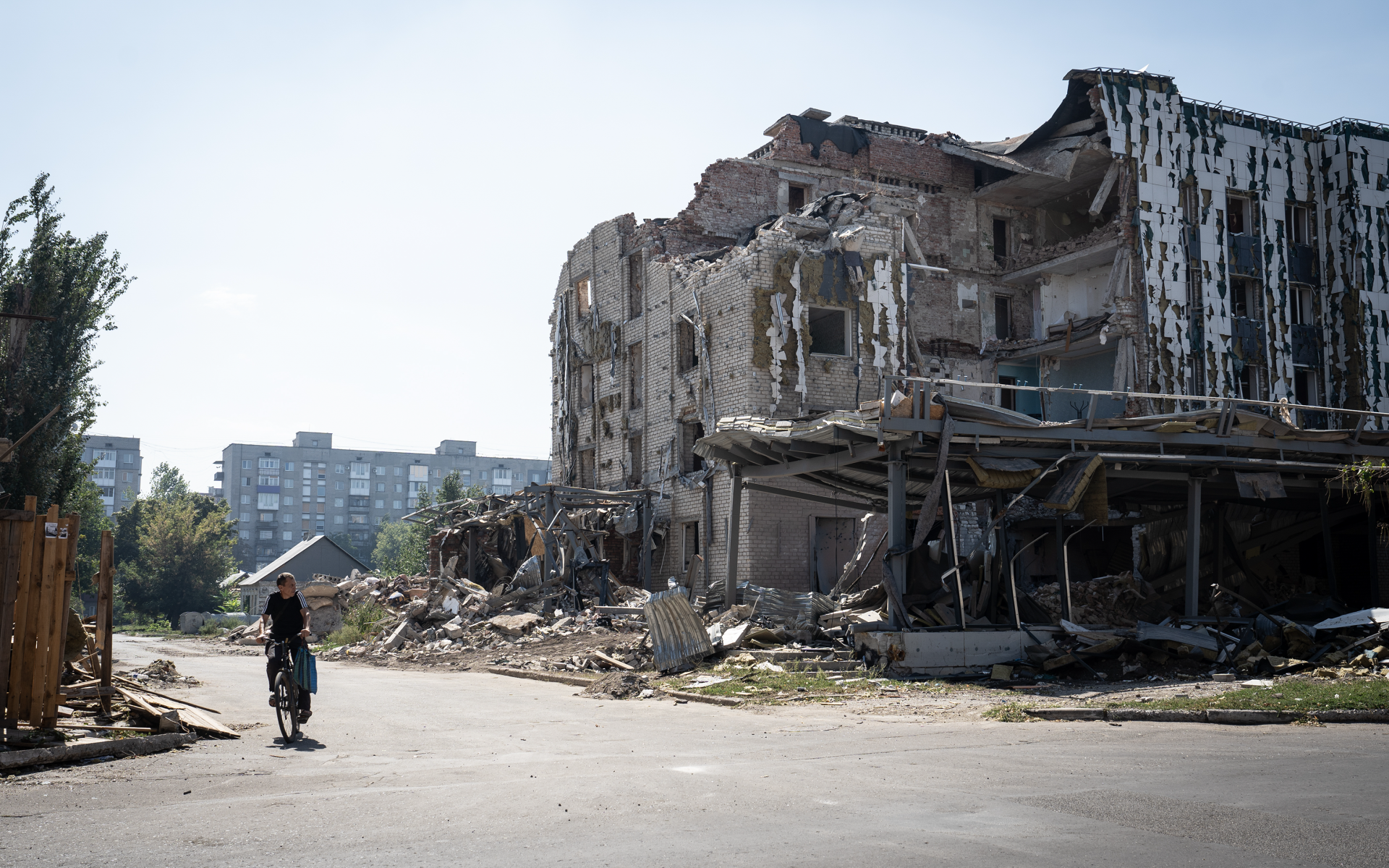
Pokrovsk, a key target in Russia’s strategy to capture Ukraine’s Donbas, faces an urgent evacuation deadline. With Russian troops advancing to within 10 kilometers and artillery fire intensifying, authorities warn that residents have less than two weeks to flee their homes.
We are meeting Sebastian Płocharski, a Polish journalist and volunteer who evacuates people from the frontline. Today, the rescue mission is in Zoriane, a small settlement roughly 6 kilometers from the Russian troops.
Here, danger comes from above. “In Zoriane, there are heavy shellings and FPV drones—it’s pretty spotted by the Russians,” he says.
The one-hour drive is tense. The windows are down so we can hear Russian FPV drones if they come at us. The rules are clear: drive fast but not too close to each other to avoid being easily targeted.
My hands are sweaty, and not due to the heat. Sebastian warns us that we have to be careful on this road because we’re in open terrain, and I have the unpleasant feeling of being watched.
Artillery sounds are getting dangerously close when we arrive in Zoriane to meet Oleksandr, Anya, and their puppy, Bodzia. They have everything packed already and only need a few seconds to put their belongings in the trunk. Their life is in this trunk—all they’ll keep from a lifetime in this place.
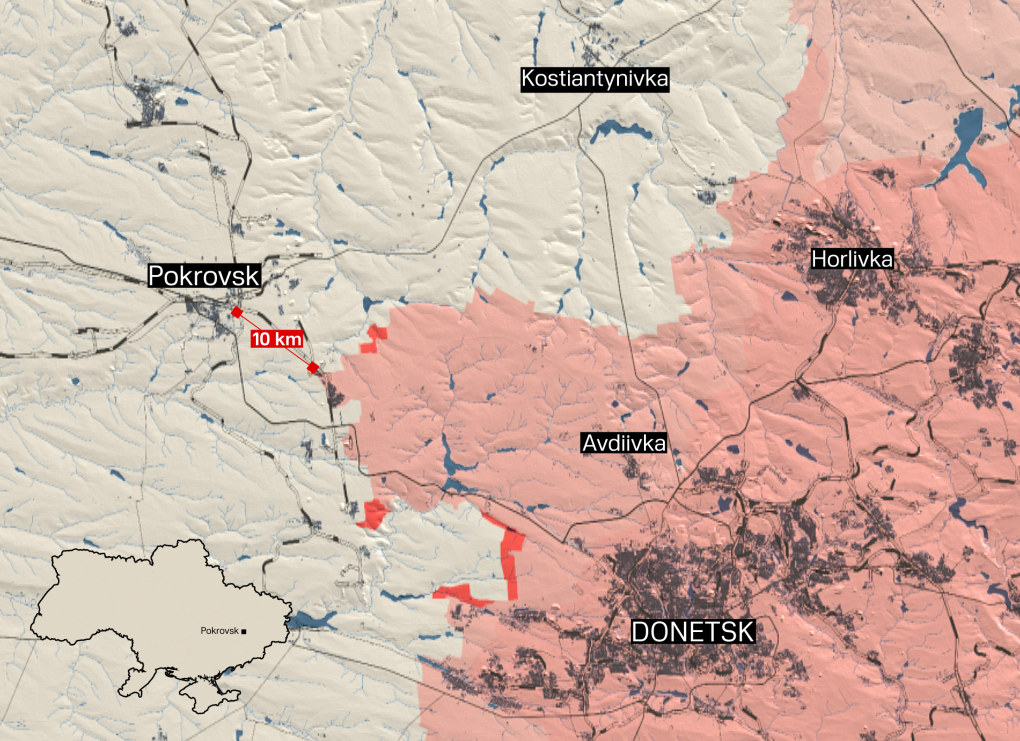
Oleksandr says the shelling is quite heavy, even by his standards. The family will go “wherever authorities tell them to go” to start anew. For Anya, the last days were unbearable.
“We’ve had enough,” she says. “You see that house back there? It got shelled while our neighbor was sitting with his mother, and they got hit.” The neighbors are alive, but they also decided to evacuate.
Sebastian tries to convince their neighbor to leave. He decides to stay behind despite the danger.
We’re heading back to Pokrovsk as fast as we can. We see evacuation trucks going the same way. Sebastien offers to help, but they insist we move on—staying here is too risky. A burned-out car on the roadside is a stark reminder of the danger.
Back in Pokrovsk, the family can finally breathe. “I’m happy I left,” says Anya. “It was a nightmare; the main thing is that our son already left, and we don’t have to worry about him.”
Sebastian is relieved the family accepted to leave. This is not always the case, he says.
“In this kind of job of evacuation, some people refuse to evacuate all the time, so of course I feel sad because I know them,” Sebastian adds. ‘
“I don’t want to use this mathematics, but 50% of these people will die if they stay, so I don’t feel guilty, but I’m sad about this,” he says with a regretful smile.
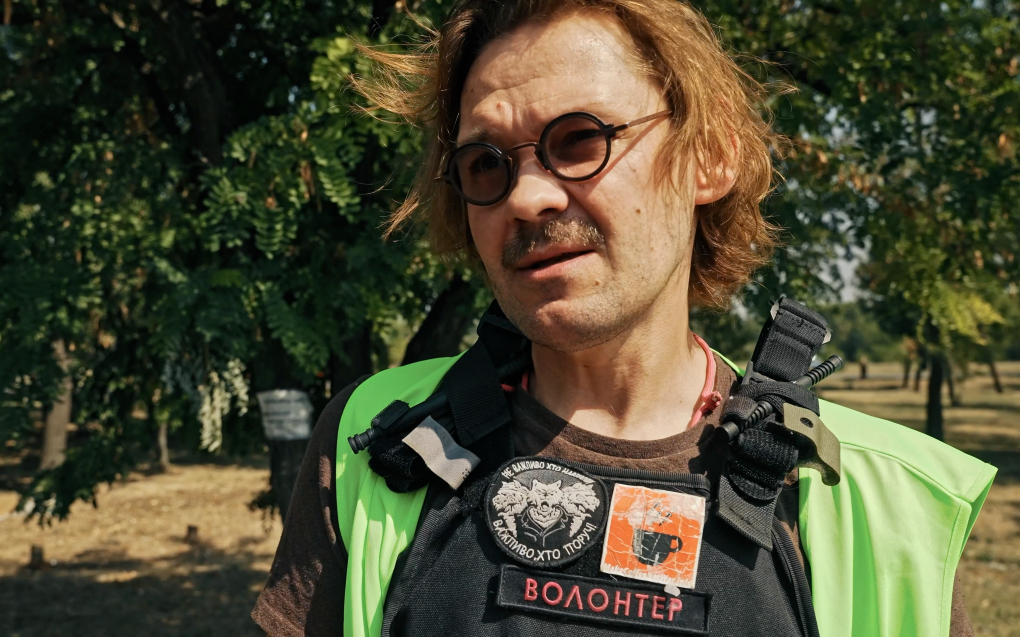
Hold the line
It’s time for us to meet soldiers and assess the situation around Pokrovsk. Ukraine’s 14th Chervona Kalyna Brigade is deployed here to halt Russia’s advance. Around Pokrovsk, the Russians use the same meat-grinder tactics they used in Bakhmut, Avdiivka, Chasiv Yar, and Toretsk. All are razed to the ground.
The nearby town of Novohrodivka recently fell, and the Russians are trying to push on Selydove. They are using their usual scorched earth and pincer strategy to conquer ruins. Over 50 assaults are made every day in this direction.
Marik, 23, is a machine gunner in the 14th Chervona Kalyna Brigade. For him, the Donbas front is a whole different level from the Zaporizhzhia region, where he was previously deployed.
Every day, he fights not only the enemy but also his fear.
“Look, I'll tell you honestly, fear is present in everyone. A person must feel fear,” he says. “This is our instinct. You can't deny it. There should be fear.”
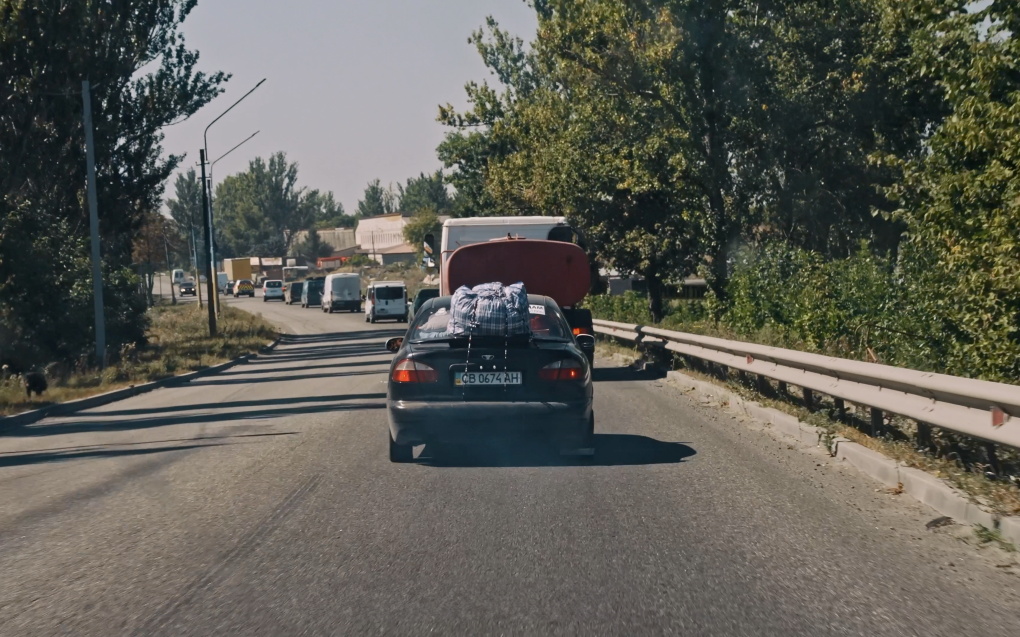
Fear stops a person from doing reckless things and makes soldiers think before doing something foolhardy, he adds. “Only a fool can say he has no fear when he goes to war.”
The war has changed Marik to the point of having a hard time talking to people who have not gone through hell and back.
“It’s very difficult when you fight here; people shed their blood here, they rot, they die, some get maimed, some lose friends,” he says as his eyes darken. “I'm uncomfortable and uninterested in talking to these people after they showed their true colors.”
Yet, here, he can count on the support of his brothers-in-arms, including Kuba. Like Marik, Kuba can’t see himself returning to civilian life yet.
“I can’t come back there,” Kuba says. “Look at Marik; he is twenty-three years old. I am more than twice his age. I want him to live, have a family, children, go out, have a grandson, and see his grandchildren.”
Kuba stops, lost in his thoughts. “Ukraine was and always will be, while Russia will perish. We’ll resist, but for how long? The most important thing is not to become like the Russians.”
The boys have to get ready for their next mission. For us, it’s time to leave the base and return to Pokrovsk.
That night, the city is hit by a series of glide bombs. Out of the window, we film a large explosion near our flat. It’s too close for comfort. The following day, people are queuing to send their belongings by the post and evacuate.
Valentyna is one of them. She’s sobbing upon the realization that she has to leave her hometown.
“My children are picking me up, but I don’t want to leave. But they refuse to leave without us. So we’ve packed our bags, and we’re going,” she says, wiping tears. Last night’s attack prompted her to leave.
“It’s very dangerous, just like last night— it’s terrible, really. But you know, that feeling of not wanting to leave outweighs any sense of danger. And I know that I’m going nowhere, with nothing, just two little boxes of nothing.”
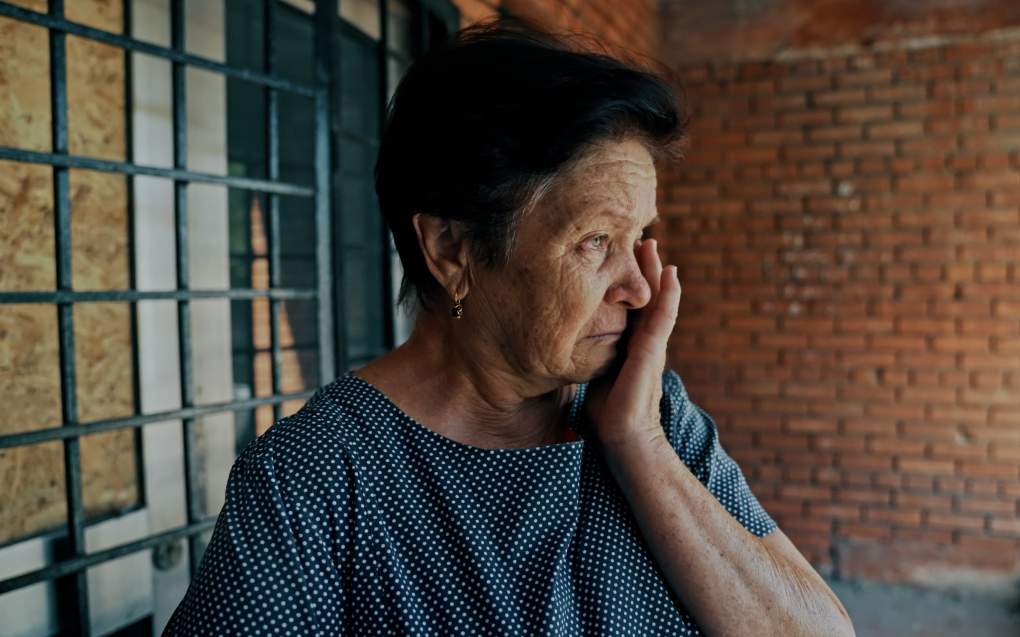
Even though most people leave by their own means, local authorities have set up evacuation centers around the city where everybody can register. The atmosphere is calm in the center we visit, and humanitarian workers quietly handle evacuees, who wait for their turn in an orderly manner. Yet, people are visibly anxious.
“Well, of course, people are anxious and scared,” says Maria Horban, a humanitarian worker who takes care of welcoming evacuees. “There are shellings every day, and at night, it adds to their stress.”
People are nervous because they don’t know what to expect in their new place or where they will be, she says.
“We must give them psychological assistance,” she adds. “Sometimes it's just enough to say ‘I'm there,’ and they calm down because they understand that they are not alone when preparing to leave.”
Oleksandr, a thin man with a sheepish look and emaciated cheeks, waits for his turn on a bench. He’s from Ukrainsk, a small settlement near Pokrovsk. He looks lost.
“We're afraid,” he says. Like many others, he took only the essentials with him. His disheveled appearance betrays his distress. He plans to go to Rivne, in Western Ukraine. “I feel sorry to leave my home because this is my homeland,” Oleksandr says sorrowfully.
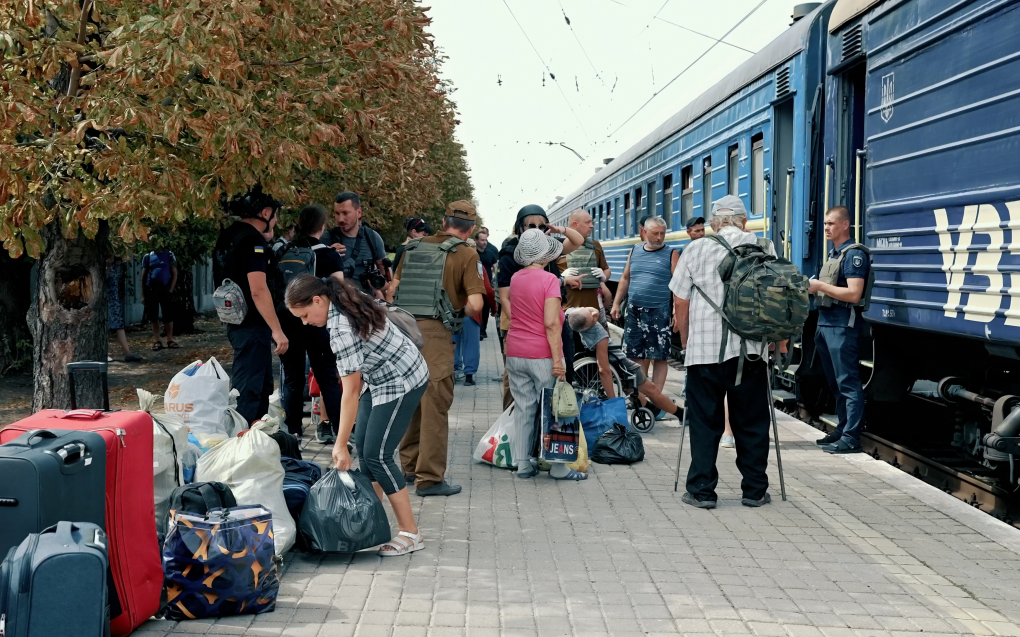
A special train leaves Pokrovsk every day. Locals can hardly contain their tears after leaving their lives behind and boarding the crowded wagons. Most will likely end up in dormitories until they find more stable housing or relatives willing to take them. It’s unclear if they will ever be able to come back.
The few shops that are still open often close in the afternoon. Pokrovsk already looks like a ghost town. Most people have already left to save their lives, but some decide to stay despite the looming threat of the Russian assault, closing in by the day.
Some don’t have the means to leave, and some are afraid to start a new life somewhere. About 26,000 people remain out of the city’s 86,000 pre-war population, local authorities report.
As of September 5, roughly 1,000 children were still in the city. Authorities have announced their mandatory evacuation, a decision described as “necessary and inevitable” by the regional governor Vadym Filashkin.
Upon leaving Pokrovsk, I can’t help but think of Mariupol, Bakhmut, or Avdiivka, all these Donbas cities razed to the ground by the will of an army ready to destroy anything in its path to plant a Russian flag on yet another hellscape.

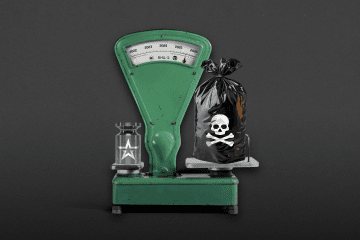
-29a1a43aba23f9bb779a1ac8b98d2121.jpeg)
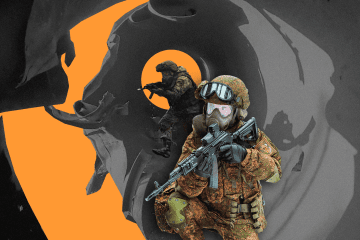
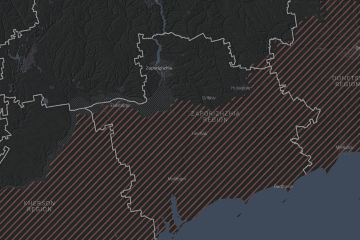
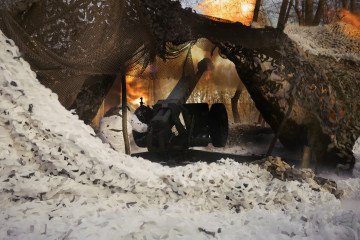
-0666d38c3abb51dc66be9ab82b971e20.jpg)